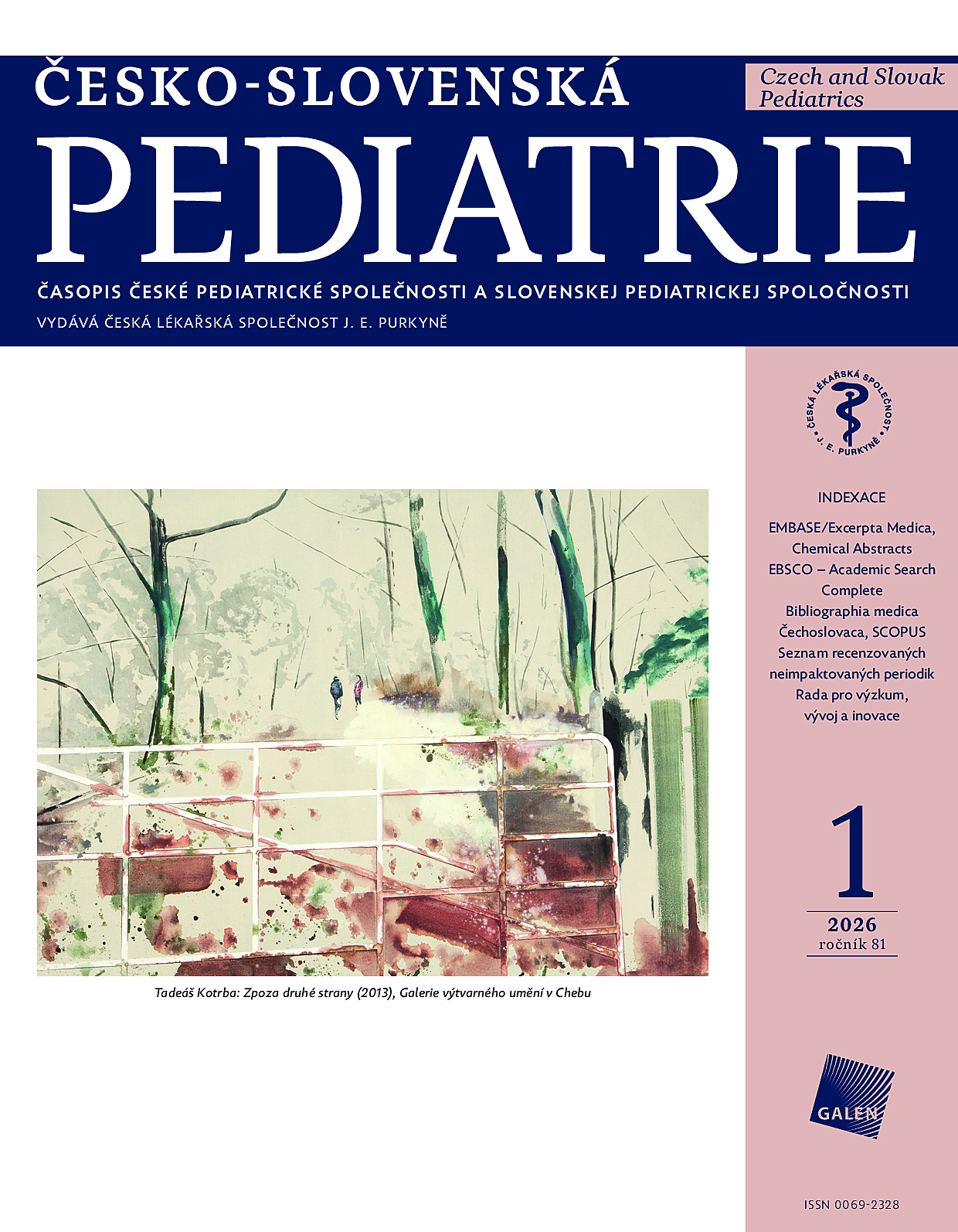-
Medical journals
- Career
News

Meta-analysis of the Metabolic Effects of Second-generation Antipsychotics
1. 11. 2022 Source: Modern Treatment of SchizophreniaSecond-generation antipsychotics used in the therapy of schizophrenia exhibit varying metabolic profiles. A recently conducted meta-analysis by Italian authors investigated the impact of second-generation antipsychotics on weight gain, BMI, lipid spectrum, and glycemia.

Prevalence of Metabolic Syndrome During 1 Year After the First Episode of Psychosis
Portuguese authors elucidated the high prevalence of metabolic syndrome and adverse metabolic parameters in individuals with the first episode of psychosis. Moreover, it significantly increased…1. 11. 2022 Source: Modern Treatment of Schizophrenia
How Does Erdosteine Perform in Combination with Antibiotics?
Erdosteine is an oral mucoactive drug that reduces mucus viscosity by degrading disulfide bonds in the mucin polymer. It achieves this effect through a free thiol group in its main active metabolite,…1. 11. 2022 Source: Cough Therapy
Benefit of Adding Erdosteine to Maintenance Treatment of COPD
Erdosteine is a mucoactive drug with anti-inflammatory, antioxidant, and anti-adhesive effects against bacteria, commonly used in the treatment of chronic obstructive pulmonary disease (COPD). In…1. 11. 2022 Source: Cough Therapy
ERS 2022: What Insights Do Studies Focused on COPD Biomarkers Bring?
In this year's scientific program of the international congress of the European Respiratory Society (ERS 2022), there was also a lot of talk about the investigation of biomarkers of chronic…1. 11. 2022 Source: Cough Therapy
Specific treatment of pulmonary involvement in patients with AAT deficiency − why, how, and for whom?
For patients with emphysema and decreased lung function due to alpha-1-antitrypsin deficiency (AATD), there is an approved specific treatment which involves the i.v. administration of…1. 11. 2022 Source: Deficiency of Alpha-1-Antitrypsin
Diagnosis of AAT Deficiency According to Italian Recommendations and a Clear Algorithm for Practice
Alpha-1 antitrypsin deficiency (AATD) is a genetic disorder that primarily affects the lungs and liver. It is considered a rare disease, but it is also significantly underdiagnosed. Given the…1. 11. 2022 Source: Deficiency of Alpha-1-Antitrypsin
Does adding statins to DOACs reduce the risk of major bleeding in patients with non-valvular atrial fibrillation?
A large retrospective study, the results of which were recently published, investigated to what extent the concurrent administration of statins is associated with a lower risk of major bleeding,…1. 11. 2022 Source: Anticoagulant Treatment
ESC 2022: Evidence of SGLT2i Effectiveness in HFrEF Treatment is Growing: How to Integrate Them into Routine Practice?
Although the need for pharmacotherapeutic options for patients with heart failure with reduced left ventricular ejection fraction (HFrEF) is essential, challenges in implementing this medication…1. 11. 2022 Source: Heart Failure
What Can We Expect from Sorafenib in the Treatment of Liver Cancer Affected by Nonalcoholic Fatty Liver Disease?
Ubiquitous and increasingly common obesity is a risk factor for many cancers. Over the past 20 years, studies have linked obesity to higher incidences of breast and colorectal cancers, as well as…31. 10. 2022 Source: Oncological Treatment
Alopecia Areata – Autoimmune Inflammatory Disease and a New Targeted Treatment Option
Alopecia areata (AA) is one of the non-scarring focal alopecias. It is an autoimmune disease of the hair follicle, the etiopathogenesis of which is not entirely understood. At the hair root, a…31. 10. 2022 Source: Biological Treatment
Contact Dermatitis in Patients with Venous Ulcers – and How to Prevent It?
The prevalence of chronic wounds increases with the rising average age, and for example, venous ulcers affect up to 2% of the global population. Materials used for wound coverage, however, present a…31. 10. 2022 Source: Wound Healing
Prim. Václava Adámková: People mistakenly believe that there are enough antibiotics and that they will always handle infections
According to the World Health Organization (WHO), by 2050, infections untreatable with antibiotics could become the leading cause of death, surpassing cardiovascular and oncological diseases. Rising…26. 10. 2022 Source: Anti-Infectives
Options for Tapering TPO-RA in ITP Patients: Practical Experience and Expert Consensus
A recently published British study aims to provide recommendations on tapering TPO-RA in patients with immune thrombocytopenia (ITP) based on existing evidence, survey results of clinical practice…25. 10. 2022 Source: Immune Thrombocytopenia
Effect of Romiplostim in Refractory ITP with Possibility of Maintaining Response Without Treatment – Case Report
This case report from the United States features an ideal therapeutic response to romiplostim in a patient with refractory immune thrombocytopenia (ITP). After several years of successful therapy,…25. 10. 2022 Source: Immune ThrombocytopeniaLogin#ADS_BOTTOM_SCRIPTS#Forgotten passwordEnter the email address that you registered with. We will send you instructions on how to set a new password.
- Career















